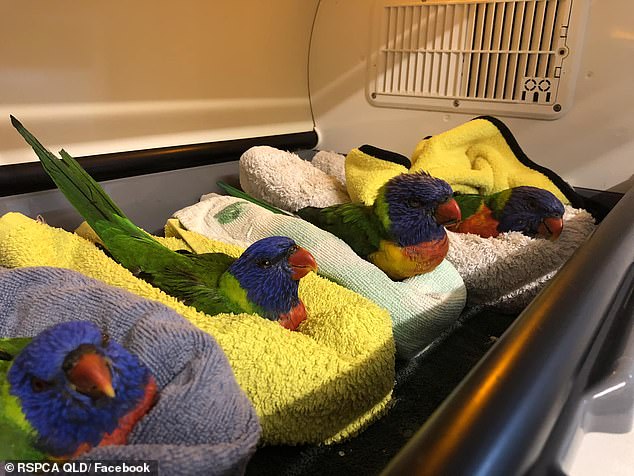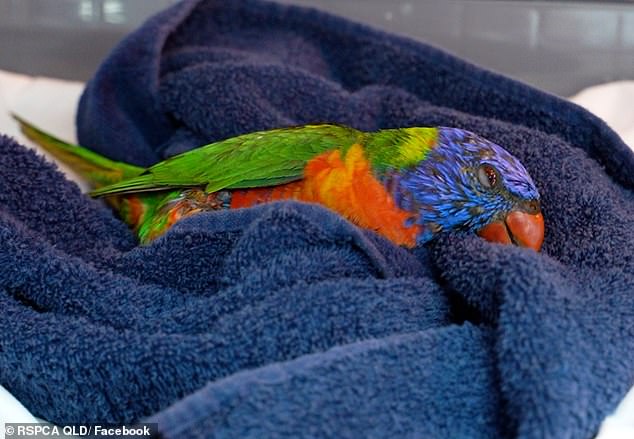Mystery disease a serious threat to thousands of rainbow lorikeets in Queensland and New South Wales
A mysterious disease is ravaging Australia's rainbow lorikeet population, leaving them paralyzed and unable to fly.
The Queensland RSPCA has reported an increase in cases of Lorikeet Paralysis Syndrome (LPS), which can be cured with early intervention, but many birds die if treated too late.
The cause is unknown and it is considered one of the most important wildlife diseases in Australia, affecting thousands of birds in Queensland and New South Wales.
Thousands of people were left devastated after the animal rescue charity shared a photo of four little parakeets, Mash, Chippy, Tater and Spud, stricken with the disease at a wildlife sanctuary.
'A mysterious poison that makes our rainbows in the sky unable to walk, eat, blink and ultimately move altogether. LPS is now considered one of the most important wildlife diseases in Australia,' RSCPA QLD said.

Rainbow parakeets in New South Wales and Queensland are threatened by a potentially fatal disease: Lorikeet Paralysis Syndrome
'The cause of LPS is still unknown. However, researchers are investigating the possibility that this is caused by the ingestion of a poisonous plant in southern Queensland and northern NSW.”
Rescuers said the syndrome mainly occurs between October and June, with a peak between December and February.
If sick parakeets receive treatment for LPS early, they have a better chance of survival, but they will require 24-hour intensive care for weeks to months to fully recover.
“Upon arrival, our team at the Wildlife Rehabilitation Center at Eumundi gave Mash, Chippy, Tater and Spud a comprehensive health assessment, starting with x-rays to ensure they had not suffered any additional injuries,” the post continued.

The RSPCA of Queensland has reported an increase in the number of cases of Lorikeet Paralysis Syndrome, which can be cured with early intervention, although many birds die if treated too late
'Then their treatment for LPS began with fluid therapy, pain relief, nutritional support, regular bed changes and baths, and the administration of eye drops to combat their inability to blink.'
Sadly, Spud died of LPA, but the other three continue to show 'incredible improvement' and can now sit on perches and feed themselves again.
Symptoms of LPS include the inability to fly, paralysis of the legs and wings, bumping and wobbling, voice changes, and in severe cases, the inability to blink or swallow.
The RSPCA is urging anyone who sees a parakeet showing symptoms to seek immediate help by calling the organisation's 24/7 emergency line 1300 ANIMAL (264 625).
